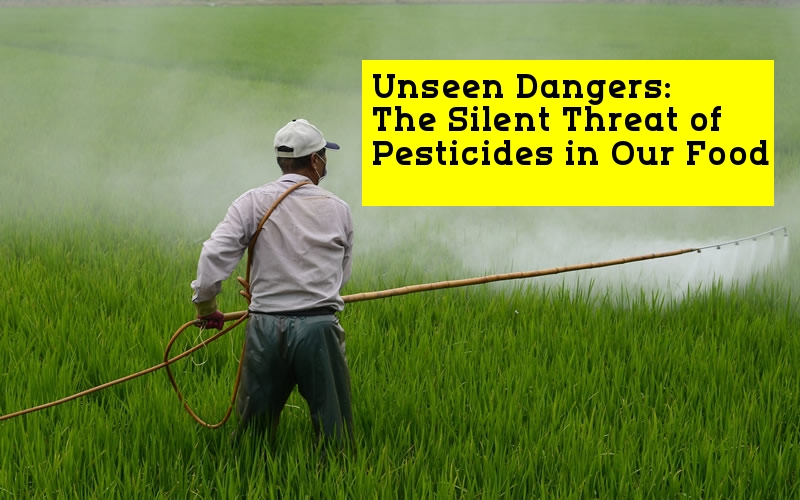I love strawberries but rarely eat them now because I have known for some years how intensively they are sprayed. Now we just choose to only eat them in season when the organic ones are quite reasonable to buy as an occasional treat. Sometimes I weaken and buy local, but at least I know I am probably eating pesticides, and that stops me from binging. If you think about it, strawberries always used to be a much-looked-for seasonal treat.
It’s only the supermarkets that have made us think we should be able to eat everything, all the time, every month of the year. The cost is the environment, the planet, and our health. In the winter, we love to eat stewed apple buckwheat pancakes with some nuts for breakfast. Yummy, filling, and not too expensive.
This is very distressing information for someone who can’t afford organic food. I consume a lot of frozen berries every day, as berries are touted as a life-extending, anti-cancer food that is full of polyphenols, etc., yet low in sugar compared with other fruits.
Organic berries of any kind are both extremely hard to come by in Scotland (there’s no Ocado here, for example), and where they are available, they are extremely expensive (about £6 for a small bag that would be about 2-3 80g portions, often less). Eating mostly organic food would cost at least £100 per person per week. That is nowhere near attainable for someone who is unable to work due to a chronic illness.
So what should I eat? Is it better to eat “healthy” foods that are full of pesticides, or should I avoid certain foods altogether because I can’t afford or access organic? And why, oh, why are above-safe levels of pesticides even allowed in our foods?!
I’ve been pressure-cooking dried beans and lentils for a few years. A 2019 study was published by the University of São Paulo in Brazil titled “Effect of pressure cooking on the reduction of pesticide residues in beans.” It was in the journal Food Chemistry.
The researchers tested the levels of five different pesticides:
- Chlorpyrifos
- Cypermethrin
- Deltamethrin
- Diazinon
- Malathion
Found that pressure cooking for 15 minutes reduced the levels of all five pesticides by at least 90%. The greatest reduction was seen for cypermethrin, with a reduction of 99%. I pressure-cook quinoa for the same reason.
In talking about exposure to chemicals, another thing that concerns me is the tin can liner, Bisphenol A, sprayed on the inside of cans to protect them. Exposure to this chemical increases in tins with acidic contents, such as tomatoes and tomato-based products. This worries me a lot. I try to eat organic wherever possible, but organic tinned tomatoes and baked beans potentially contain this chemical, so I avoid them now.
Some companies, I believe, are now not using this can liner, but not enough. Canned food is actually bad for you. It usually contains BPA (bisphenol) or other plastics that line the can. The food is also piped into the can, which is extremely hot, so the plastic would leach into the food. Also, canned beans are usually high in salt, which is not good for people with high blood pressure.
I’d be really interested in some lateral thinking about extraneous variables in nutrition research. For example, if you’re on a keto diet like me, you’d coincidentally be avoiding almost all of these high-pesticide foods without consciously deciding to.
Or perhaps if you’re doing a Candida diet, you’re also going into ketosis and not eating high-pesticide foods, but you’re not aware of either. And with lots of these particular diets, you’re cutting out ultra-processed food just because suitable food isn’t really available. My feeling is that a lot of nutrition research isn’t studying what it thinks it’s studying.
The recent depression and UPF study discussion is a different variation on this. As a psychology graduate rather than a nutritionist, what seems obvious to me is that as depression creeps in, one of the first casualties is the ability to make good food choices.
You lack the energy and motivation to prepare food from scratch. An ultra-processed, high-carb, convenient alternative gives much better short-term outcomes, but you lose the ability to prioritize long-term health over your immediate needs. Association studies are almost useless in these circumstances, and based on the recent Zoe discussion about non-compliance in cross-over diet studies, it might be that even these aren’t particularly accurate.
The sodium bicarbonate idea seems good.
Would a wash in a warm solution followed by a thorough rinse and then a second wash in a fresh solution followed by another rinse bring, for example, blueberries down to organic levels or even lower?
The problem with “organic” is that you don’t know if you’re paying extra for a word on a package for the exact same thing. As long as food companies are allowed to lie about what they are selling you, it’s just a waste of money. This is so depressing. We try so hard to eat healthily; it seems we are going to have to grow our own.
Be careful; a lot of studies claim to show high levels of glyphosate in foods. But in fact, they are analyzing the metabolites of glyphosate. They detect the metabolite and then assume that glyphosate is present, when in fact the metabolites may be derived from perfectly innocent substances. In any case, glyphosate is not toxic to humans; it interferes with plant metabolism. It has been tested up to ten times in rodent studies and is one of the safest pesticides available.


[…] persistent chemicals, herbicides as well as pesticides, I donate plasma and platelets routinely. Starting over 2 years ago, I’ve donated about 7 […]